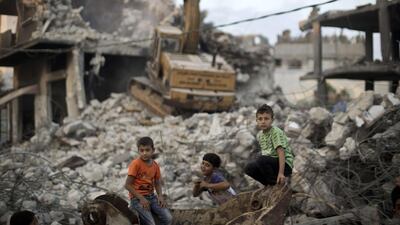What significance ought to be assigned to the British Parliament’s decision to formally recognise Palestine as a state? The 274-12 vote in favour seems overwhelming, but has to be balanced against only half of the eligible MPs bothering to vote. While this is clearly a win for the Palestinian cause, the decision is symbolic.
Absolutely nothing will change on the ground in the occupied territories as a consequence of the events in the House of Commons. It does nothing directly to diminish the daily humiliation of restrictions of movement, or the deliberate hampering of the Palestinian economy or the expansion of settlements on land intended to form the core of the Palestinian state.
But what it does signify is proof yet again that the Palestinians’ most powerful weapon is world public opinion. This is a far more potent force than angry Palestinian youths throwing rocks at Israeli patrols and especially far more likely to lead to a Palestinian state than Hamas’s ineffective rockets, which have the effect of diminishing global support.
The significance of yesterday’s vote was encapsulated in particular by Conservative MP Richard Ottaway, the veteran chairman of the House of Commons foreign affairs committee, who said he had always supported Israel and would normally have voted against this motion. “But such is my anger over Israel’s behaviour in recent months that I will not oppose the motion,” he said beforehand. “I have to say to the government of Israel that if they are losing people like me, they will be losing a lot of people.”
That in a nutshell is the significance of Monday night’s vote in the House of Commons, just as it was when Sweden became the first major European country to pledge to recognise Palestine as a state. The causes of this are manifold: Israel’s relentless land grabs on the West Bank and East Jerusalem, the blame apportioned to Israel’s bad faith negotiations for the latest peace talks failing and, of course, the recent horrific carnage in Gaza.
This is what the Palestinians must leverage, becoming as skilful at the public relations battle as the Israelis. Settlers torching Palestinian farmers’ olive groves, unarmed youths being shot dead while posing no threat and the thousands of similar daily examples of occupation must be conveyed to the global public to displace Israel’s perpetual claim of victimhood, showing instead its leaders as militant aggressors. The vote in the House of Commons shows this is the way ahead.

